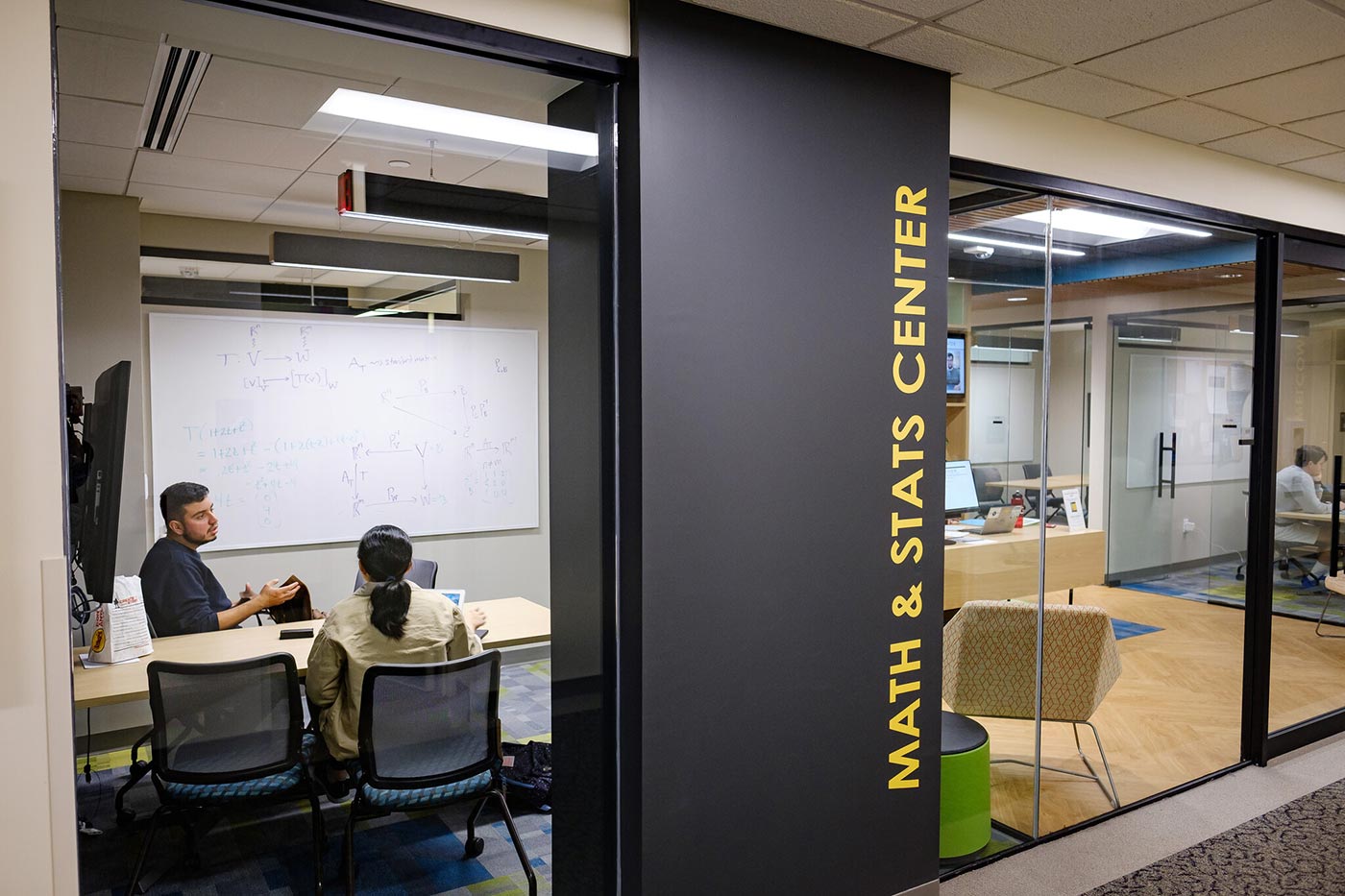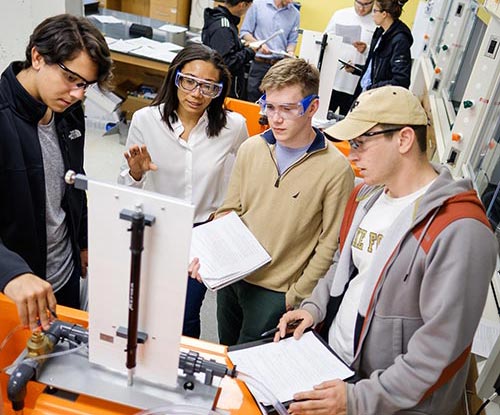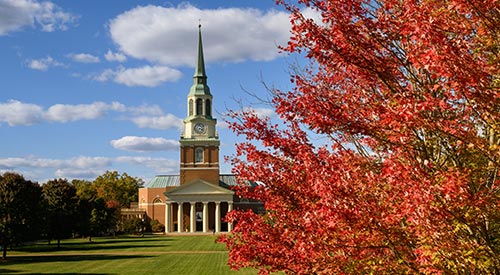Statistics

Statistics Degree
Bachelor of Science, Bachelor of Arts, Minor
Program Type:
Major, Minor
Career Path:
STEM (Mathematics)
Program Site:
College or School:
Why study Statistics?
Students who major in Statistics are taught to become leaders and advocates for sound statistical reasoning, and to improve our society through innovative statistical and interdisciplinary research.
- According to the Bureau of Labor Statistics, data scientists (third) and statisticians (fourth) will be among the 20 occupations with the highest projected increase in demand through 2033.
- In the Class of 2025, Statistics majors paired that choice with other declarations in Philosophy; Spanish; German; Politics; Psychology; Japanese Language and Culture; and more.
- Statistics major Cassandra Hung (’26) of West Chester, Pennsylvania, was named a Goldwater Scholar in 2024.
The Statistics degree is offered as a Bachelor of Science (B.S.), Bachelor of Arts (B.A.), and a minor.
What classes would I take?
Our model and curriculum educate the whole person and often help students discover interests they had never previously discovered. Students generally take 100-200 level courses during their first year of college, while registering for higher level courses as upperclassmen.
Sample courses* that you may take as a Statistics student include:
100-200 level
- Elementary Probability and Statistics
- Introduction to Regression and Data Science
- Competitions
- Design and Sampling
- Statistical Computing
- Calculus with Analytic Geometry II
- Fundamentals of Computer Science
- Discrete Mathematics
300 level
- Probability
- Statistical Inference
- Linear Models
- Networks: Models and Analysis
- Multivariate Statistics
- Time Series and Forecasting
* Course availability and offerings can change at any time. Refer to the Academic Bulletin to view all major requirements.
What kind of experience will I gain?
The program in Statistics is designed to give a rigorous background in the foundations of the statistical sciences. This includes exposure to the theoretical foundations of methods and statistical techniques as well as experience applying these techniques.
Students who complete this degree program will have the statistical background for graduate programs in statistics, biostatistics, data science, or other related fields, and entry level research work in industry or government.
This program also provides content knowledge that is useful for students intending graduate study in computer science, machine learning, economics, and other areas. The content knowledge is also useful for those intending to teach high school statistics.
Students in this program will develop the following skills:
- Persistence
- Patience
- Logical manner of thinking
- Curiosity
- Skepticism
- Strong problem solving skills
- Creativity
- Comfort with abstract concepts
- Analytical skills
- Recognition of patterns and hidden similarities within groups of data
Are there extracurricular activities?
Joining a club or organization is a great way to get involved and do more with your major. Our Statistics students participate in the following programs:
- Sports Analytics Club
- Association of Women in Mathematics
- Data Analysis Competitions
What kind of job can I get?
Careers that often interest Statistics majors, and fields our graduates work in, include:
- Actuary
- Auditor
- Attorney
- Bank Officer
- Biostatistician
- Budget Analyst
- Business Intelligence Analyst
- Consultant
- Controller
- Credit Analyst
- Data Analyst
- Data Engineer
- Data Scientist
- Educator
- Financial Analyst
- Investment Banker
- Mortgage Banker
- Numerical Analyst
- Physician
- Project Manager
- Quantitative Analyst
- Statistician
- Technical Advisor
- Technical Writer
- Underwriter
Graduates have pursued careers in finance; data analysis; education; law; military service; and medicine, among others.
Related Programs

Majors & Minors
Choose from more than 50 majors and over 60 minors to find your perfect fit.

Life at Wake
Take a moment to explore all the student experiences that make Wake Forest unique.

Virtual Tour
Can’t make it for a visit? No problem! Let us show you around campus virtually.

Keep in Touch
Let us know you’re interested in Wake Forest and we’ll do the rest.

Visit Campus
You truly can’t appreciate the beauty of our campus until you experience it for yourself.

Apply
Want to be considered for our next class of Demon Deacons? Here’s how to get started.
